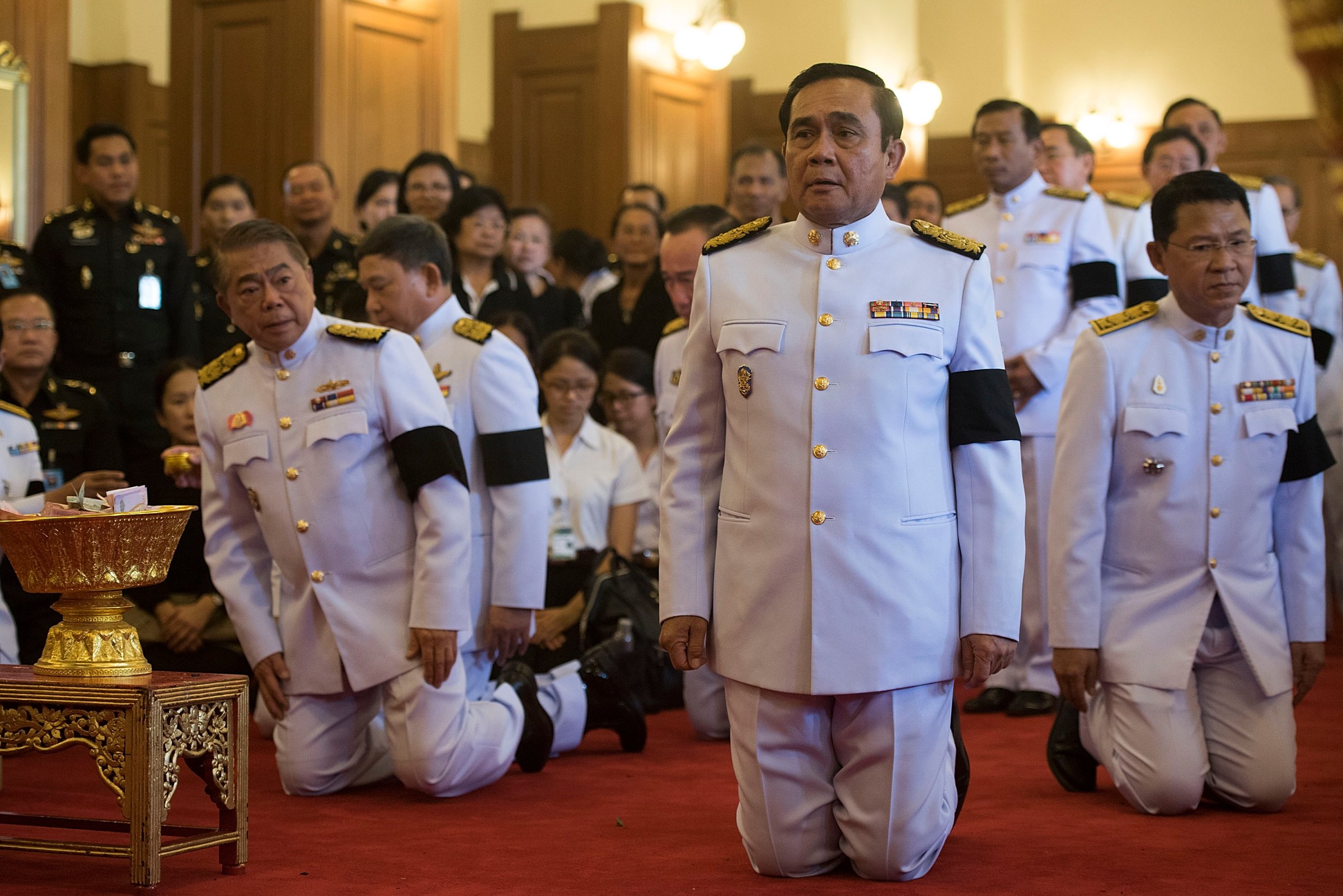
The leader of Thailand’s junta, General Prayuth Chan-ocha, has warned that anyone upsetting those still mourning the late King Bhumibol Adulyadej risks violent attack.
According to the Bangkok Post, Prayuth, whose remarks were conveyed by a junta spokesman, said that “insensitive remarks” and behavior could prompt physical retribution.
The general’s stark warning reflects the paranoia that persists in the country a week after the monarch’s passing.
Five people have been arrested under lèse majesté laws since the King died last Thursday, according to the Bangkok Post, while a number of others have been attacked by ultra-royalist mobs, beaten or forced to publicly prostrate themselves before images of the late monarch.
Despite evidence of mob-style justice being carried out in several towns across the country, there have been no reports of legal action taken against vigilantes.
Thailand’s draconian lèse majesté legislation is meant to protect the monarchy from defamation, but in practice it is freely used by authorities to neutralize dissent. Thais have been threatened with decades in jail for “crimes” as innocuous as making fun of the late King’s dog.
“The junta continues to use the law to undermine opponents as part of stabilizing the new throne,” Pavin Chachavalpongpun, associate professor of politics at Kyoto University’s Center for Southeast Asian Studies, tells TIME in an email. “Even when it will be counterproductive.”
Earlier this week, a senior junta member said Thailand would seek to extradite suspects living abroad, prompting concern that the lèse majesté law — and another controversial provision broadly outlawing “computer crimes” — could be leveraged to hunt down exiles and émigrés. The official acknowledged that extradition would be unlikely, though his comments coincided with calls from royalist vigilantes for Thais to track down an exile believed to be hiding in France.
The junta has asked Internet service providers to monitor content during the mourning period and block what they see as “inappropriate material.” According to the Bangkok Post, scores of people are having their online activity closely monitored by a government cybersecurity team, while some 200 websites have been blocked.
More Must-Reads from TIME
- Donald Trump Is TIME's 2024 Person of the Year
- Why We Chose Trump as Person of the Year
- Is Intermittent Fasting Good or Bad for You?
- The 100 Must-Read Books of 2024
- The 20 Best Christmas TV Episodes
- Column: If Optimism Feels Ridiculous Now, Try Hope
- The Future of Climate Action Is Trade Policy
- Merle Bombardieri Is Helping People Make the Baby Decision
Contact us at letters@time.com